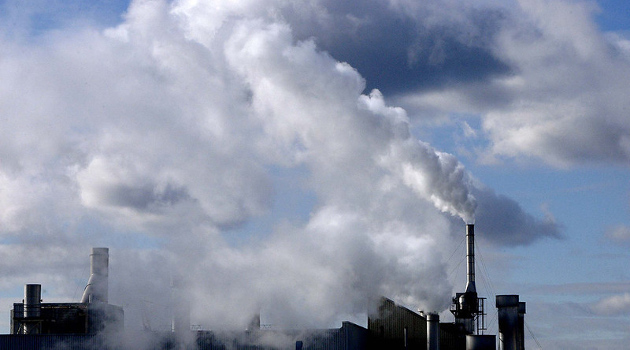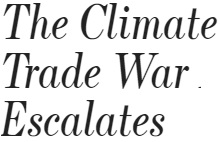For the first 50-plus years of my life, free trade was in the ascendancy.
Policy makers had learned a big lesson from the Great Depression about how protectionism was economic poison, and various trade agreements after World War II helped reduce trade taxes and other barriers to cross-border commerce.
It also helped that there was a “Washington Consensus” in the late 1900s that supported pro-market reforms in the developing world.
Unfortunately, trade liberalization has ground to a halt. In part, this is the fault of the United States, thanks to the protectionism of both Trump and Biden.
But let’s also make sure the European Union gets a a share of the blame as well. For instance, the one good thing about the EU (free trade among members) also happens to be one of the many bad things about the EU (protectionism against the rest of the world).
But being a protectionist bloc is a trivial problem compared to what is on the horizon. As reported yesterday by the Wall Street Journal, the EU has unveiled a scheme to use climate as an excuse to increase global trade barriers.
The European Union reached an agreement to impose a tax on imports based on the greenhouse gases emitted to make them, inserting climate-change regulation for the first time into the rules of global trade. …The EU is expected to adopt it in the coming weeks as part of a sweeping package of legislation… The plan…has rattled supply chains around the globe and angered the EU’s trading partners, particularly in the developing world… It has also unsettled manufacturers in the U.S. who are concerned the measure would create a new web of red tape to export to Europe. …Europe’s carbon border tax aims to protect European manufacturers from competitors in countries that haven’t regulated carbon-dioxide emissions. …The legislation would require importers to register with authorities and seek authorization to import goods covered by the tax.
Today, the editorial page of the WSJ weighed in on the proposal.
Christmas came early to Europe’s tax accountants this week, although companies might think the occasion feels more like April Fool’s Day. …Europe is…pushing ahead with a carbon border adjustment mechanism, or CBAM, to tax imports on their carbon intensity. Europeans say this border tax is necessary to “level the playing field” for manufacturers that must pay for carbon emissions credits under the Emissions Trading System (ETS). The ETS already makes it less economical for some industries to operate in Europe, leading green activists to note a rise in imports from countries that don’t impose the complex tax. Imagine that. The CBAM would apply to imports from countries that don’t tax carbon emissions. …The biggest losers will be beleaguered European consumers. …carbon tariffs show how climate policy has become an anti-growth project. A better U.S. Administration would fight this, but the Biden White House and Treasury are fellow travelers.
I explained last year why this was a bad idea, noting that it was bad economics and also that it would advance cronyism and be a windfall for lobbyists (especially once the EU tries to calculate the about of untaxed carbon in every product).
But I also wondered if the Biden White House would be on the right side. After all, the US (thankfully) does not have a carbon tax, so you would think that American officials would be fighting against this EU proposal.
Unfortunately, I was being naive. As noted in the WSJ’s editorial, Biden and his team are fellow travelers. Indeed, the nightmare scenario (perhaps even worse the the nightmare scenario of the Trump years) is that Biden will unilaterally impose a version of climate protectionism on the US economy.
P.S. Is anyone surprised that the French were early advocates of this approach?
P.P.S. I’m a fan of the World Trade Organization, but I doubt that the WTO has the will or the ability to save the global economy from climate protectionism.
———
Image credit: United Nations Photo | CC BY-NC-ND 2.0.



